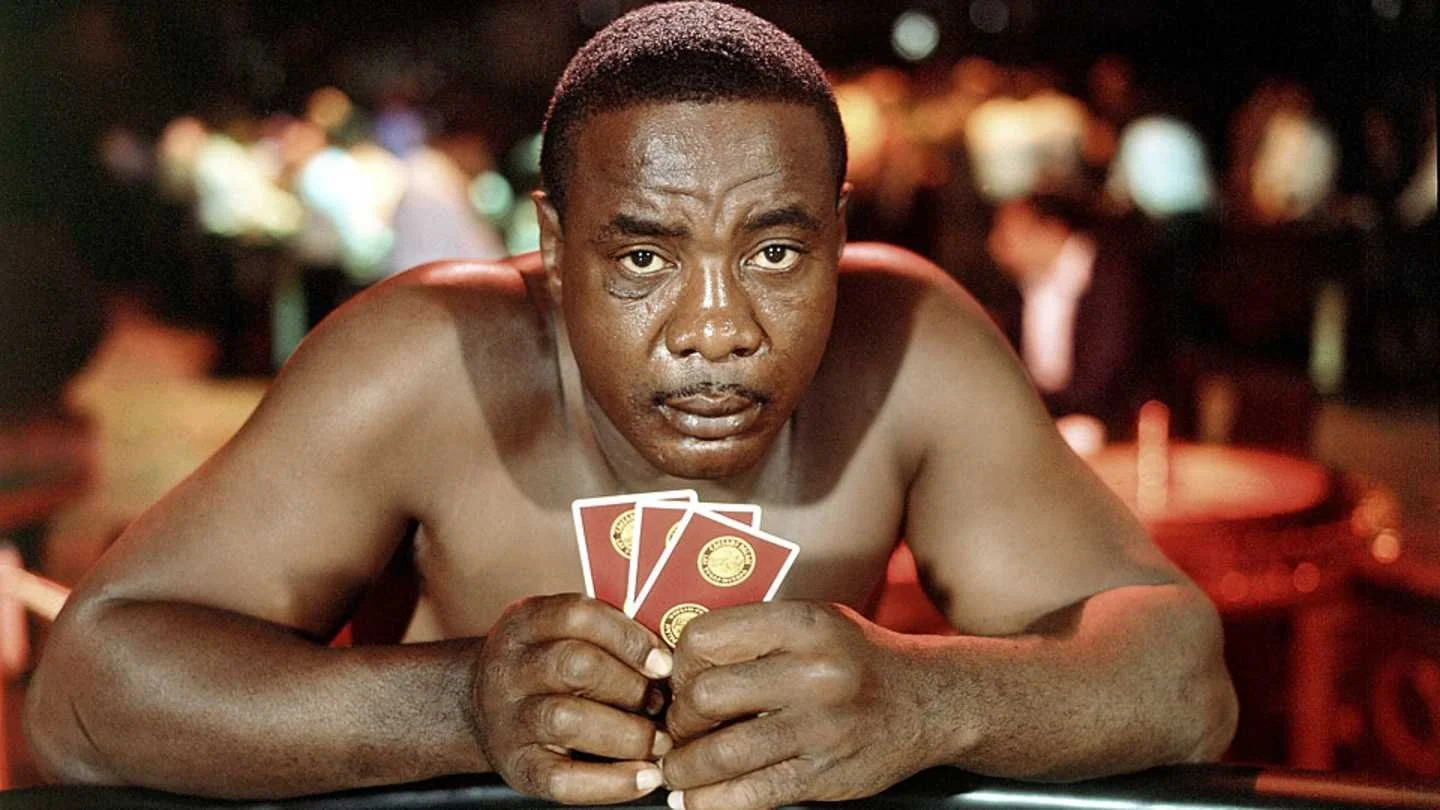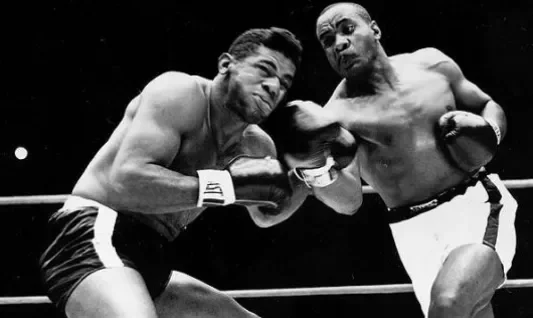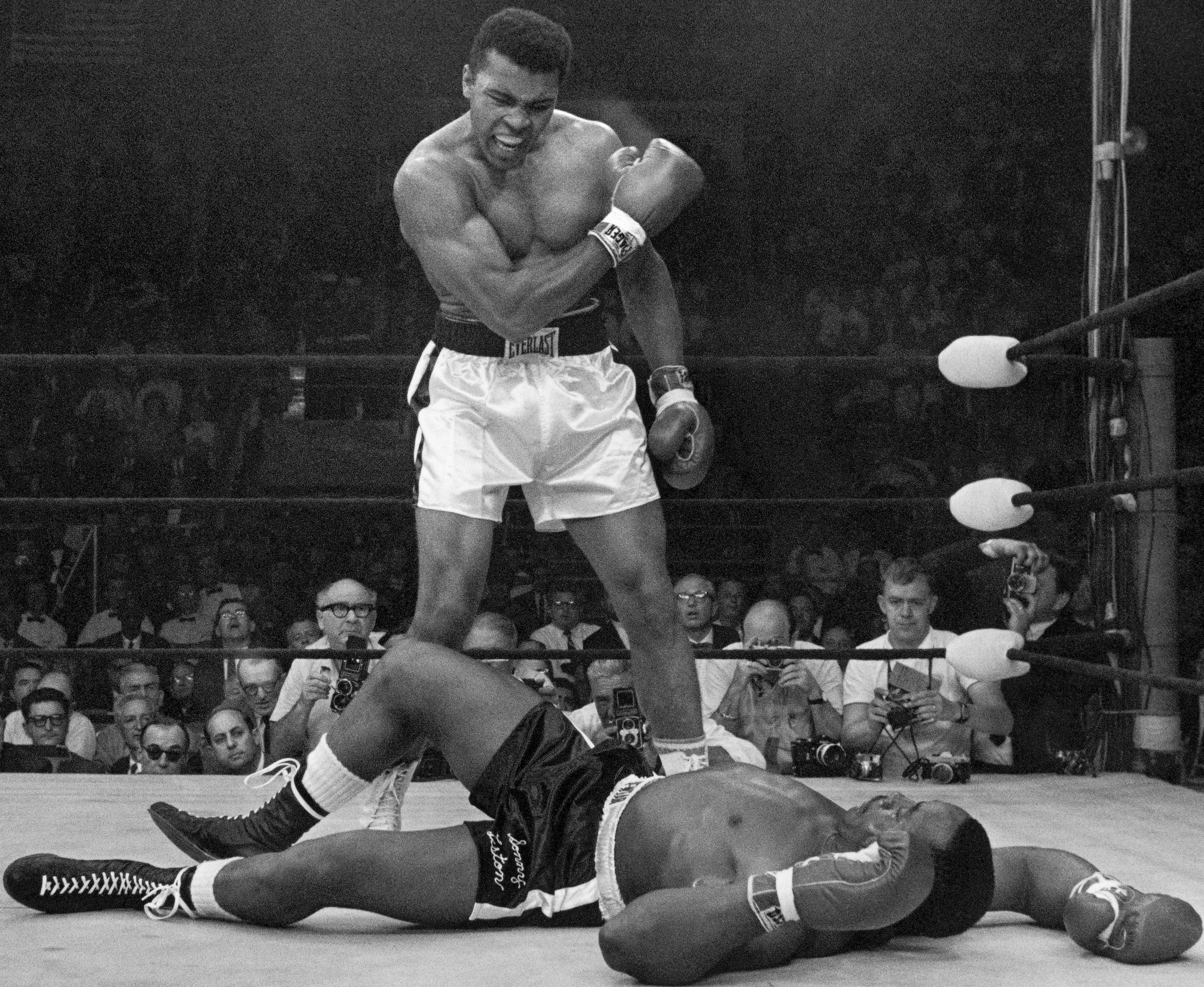BOXING HERITAGE
HOLLY HUMPHREY
Sonny Liston: The Man Who Terrified a Generation
THE SCORECARD / SONNY LISTON: THE MAN WHO TERRIFIED A GENERATION
“They always taught me, anything you want to do, do your best and be the best at it.”.
They said that Sonny Liston’s fists were the biggest in the game, his reach longer than most men could dream. He was the fighter who terrified a generation and yet, like so many of boxing’s great tragedies, he never quite escaped the shadows of where he came from.
Born the son of an Arkansas sharecropper, Sonny Liston never really knew peace in childhood. His father, a harsh and violent man, used Sonny to satisfy his anger. His mother, considerably younger than her husband, was the only source of tenderness in a house where survival meant submission. By the time Sonny was old enough to know the difference between right and wrong, he had already learned a harsher truth, strength was the only language anyone seemed to respect.
When the family moved to St. Louis, Liston’s reputation was formed in quick succession. On the streets, he was feared as the “Yellow Shirt Bandit”, a man with heavy hands. The St. Louis Police Department viewed him not as a young man but as a threat, and their relentless harassment turned him into exactly what they believed he already was. After a series of run-ins with the law, he was sent to prison. It was behind bars that the legend began. In the summer of 1952, prison officials arranged boxing matches for the inmates. Liston, broad-shouldered, thick-armed and quick despite his size, demolished his opponents. Those fights earned him an early release, but not without difficulty. His early career was financed by men with criminal ties and every step toward legitimacy seemed to be dogged by the past he could not outrun. The police in St. Louis made sure he knew he was not welcome. After one significantly violent altercation with an officer, the choice was made clear to him:
“Leave St. Louis or get carried out in a casket”.
Liston relocated to Philadelphia, where his professional boxing career quickened and he sharpened his focus, fighting eight times in 1958. Up until this point no man had survived the brute force of Sonny Liston, with every match resulting in a knockout. One boxer did rise to the challenge in Liston’s early career: Burt Whitehurst, undersized and outpowered, entered the ring with a strategy. By waiting on Liston’s long reach, he would punch before his opponent could retract his arm, keeping Whitehurst in the fight until the final bell.
Following his successful climb through the heavyweight division, the one man who stood between him and the world title was Floyd Patterson. Everything about Patterson was the opposite of Liston. Patterson was quiet, polite in nature, a man admired as much outside the ring as inside it. Liston, on the other hand, was treated quite the opposite. His past connection to the underworld made him a less than a popular winner. Even President Kennedy advised Patterson to avoid him. But Patterson, perhaps to his credit, agreed to the fight.
What followed was less a contest than an annihilation. In Chicago, unsurprisingly, Patterson conceded an easy defeat, relinquishing the world heavyweight title to Liston. When Liston returned home to Philadelphia he expected to be celebrated, stating, “I know a lot of my own people were against me, I want to prove to them I’m not going to disgrace them, I’m not going to embarrass them, I’m going to make them proud”. Only his family were there to greet him. He was a champion, but remained an outcast. Ten months later, after Liston had cleared his division, a rematch took place. A second victory was claimed by the heavyweight champion.
And then came Cassius Clay.
Clay was young, brash and unafraid of the spotlight. Where Liston let his fists speak, Clay shouted into every microphone he could find. For the first time in his career, Sonny Liston entered a fight with the crowd rooting for him, if only because they wanted the Louisville loudmouth silenced:
“People here in Miami talking about I talk too much and Liston’s going to woop me. Well I want all of them to be there and I’m going to shut up all of these mouths”.
“You look at me. I’m loaded with confidence.”
“I’m young. I’m handsome. I’m fast. I’m pretty. I can’t possibly be beaten.”
“He’s too ugly to be the world champ. The world champ should be pretty like me”.
On February 25, 1964, the fight began. Cassius Clay ran around the ring, his feet dancing, yet carrying his left hand dangerously low. Clay may have not been the heaviest hitter, but speed had a power of its own. The bell for Round 7 rang and the champion did the unthinkable, Liston refused to come back out for another round.
A rematch brought even more chaos. By then Clay had converted to Islam and changed his name to Muhammad Ali, resulting in opposing narratives between both parties. Threats and fear surrounded the fight, but when it finally happened, it ended simply in the first round. Liston lay sprawled on the canvas, Ali was directed to his corner, but the challenger stood over Liston, jumping around and taunting the champion to his feet. Liston rose ready to fight, but the referee called it off, with the media coining the fight the first round knockout by “phantom punch”.
Liston would fight on, winning 14 more times, 13 by knockout. But the title would never come near him again. On July 29, 1970, Liston fought Chuck Wepnar “The Bayonne Bleeder”. It is believed that a deal was made and went terribly wrong. Wepnar went into the fight with a significant loss on his record and dozens of stitches on his face, rumoured to have expected a win. A supposed failed dive by Liston was made, resulting in his victory.
On December 30, 1970, Sonny Liston was found dead in his home. He was 38. To this day, the circumstances of his death are uncertain.
His gravestone simply read:
“A Man”.
Sonny Liston was more than that, of course. He was a symbol of fear and power. A man who wanted desperately to be accepted and who fought inside and outside the ring to achieve that. In the end, Liston did terrify a generation. But beneath the menace was someone who sought not solely victory, but respect and recognition. It is the cruelest irony of his life that he achieved all three only after he was gone.



